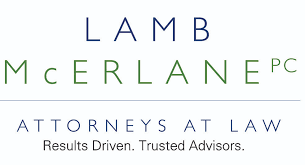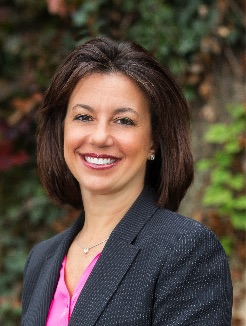Family Law: Custody Exchanges During COVID-19 Awareness

 By Carla Marino
By Carla Marino
As we navigate the continually-changing “new normal” during this current pandemic, it is clear that day-to-day life does not stop moving. This means that important and time sensitive family law issues and decisions must still be considered and addressed.
On the custody side, important legal and physical custody issues include: custody exchanges; communications about your child/children; ongoing schooling; religious schooling and attainment of sacraments; medical appointments/care for illnesses and for other therapies; and decisions that reach into the future such as various school registrations and loan applications.
Remember, during this time of COVID-19 adjustments, your parental obligations are still in force. Custody agreements (written stipulations) and orders remain in place and in effect. If you are a parent who has a custody stipulation/order in place, physical custody exchanges may be the first issue that comes to mind.
As a general matter, parents’ rights and obligations relating to custody exchanges are outlined in agreements in varying detail; these agreements address the specific days of the week, the times, and who is responsible for transportation. The requirements of “social distancing” with the goal of reducing exposure to COVID-19 may have thrown all of these details into chaos. Custody exchanges are to continue to take place as outlined in your agreement or court order.
However, with the very recent (3/30/2020) recommendation for certain counties to specifically “stay at home,” it is essential that parents communicate for the best interest of their child/children. If one (or both) parents are caregivers or first-responders (and there are many more), then extra precautions must be taken to protect your children (and you) from exposure to COVID-19. If there are protocols that both parents will adhere to, then these custody exchanges can continue to take place.
If one parent is not going to follow the recommendations to protect their children then custody becomes an issue and may have to be maintained with one parent. This is true not only for first responders and care-givers. This holds true for children who are compromised with chronic diseases that are immune system based, such as asthma, etc. It is also true where one, or both, parents have health issues that put them in an elevated compromised health situation.
Other high alert situations include when elderly grandparents, or health compromised grandparents, provide childcare. It may be that parents can reach a solution to address these safety concerns. If not, this is the time to call your attorney for guidance and look to co-parenting counseling and parent coordinators to reach a resolution. Productive co-parenting can help calm these waters and provide peace and a sense of safety for the child/children involved. If parents are unable to see past their dynamic of conflict, the parent coordinator can assist with these impasses and if one is not in place, one can be appointed.
Co-parenting, in summary form, is where both parents communicate and work together for the best interest of their child/children to create a safe and consistent schedule. While co-parenting is the reality for some parents, for many, it is not. If not, this is the time to try it. For example, if custody exchanges are to take place at a public location equidistant from each parent’s home, both parents can agree to have exchanges take place “curbside” by having the receiving parent drive to the other parent’s residence, where the children are waiting.
There is no need/requirement to enter the other parent’s home. This can be a smooth custodial exchange even in very contentious circumstances.
In circumstances where a Protection from Abuse Order (“PFA”) is in place against a parent, all custody modifications or discussions should be in writing/email with a copy to each party’s attorney. Alternatively, the parties can communicate directly through their attorneys. Communications between parents regarding custody generally are not considered a violation of the PFA but some parents may seek to use that communication as an opportunity to create other issues. Remember, custody is about the children, not the parents’ relationship.
Custody exchanges have many facets and some of those facets may need to be modified, especially under the current circumstances. Location, dates, times, and persons involved may have to be changed or fluid to accommodate one, or both, parents’ schedules.
With the current suspension of court proceedings, except for very specific matters and emergency situations, courts likely will not hear requests for temporary modifications to custody exchange protocols. A Parenting Coordinator (“P.C.”), may hear these issues, and this may be the best, non-litigious method for resolution. However, because the P.C.’s recommendations must be provided to a judge for the final determination/resolution, absent agreement of the parties to accept the P.C.’s recommendation, they will not be binding. And again, if there is no agreement, these issues may not be expeditiously resolved through the courts now that COVID-19 has affected the court’s schedule.
Keep in mind that “informal” modifications to custody exchanges are not considered violations of the parties’ custody order as long as both parents agree to what is being modified. As always, copy your attorney on these communications so that he or she is kept in the loop of what is happening; your attorney can discuss unintended consequences especially where a PFA is in place. Also, be sure to reflect in your communications when and how an agreement to modify the custody exchange protocol was reached.
With the issuance of “shelter in place” and “stay at home orders” custody exchanges may still take place. Working together as parents for the best interest of the child/children sets the groundwork to reasonably address legal and physical custody issues as we proceed in what is now our “new normal.”
For further information contact about Custody Exchanges or other Family Law questions, contact Lamb McErlane PC Family Law Attorney Carla Marino. cmarino@lambmcerlane.com. 610-701-4413.
_______
 Carla Marino concentrates her practice in Family Law and specializes in all aspects, including, but not limited to, pre-nuptial planning and agreements, post-nuptial agreements, divorce, equitable distribution, child custody, alimony, support, property settlement, all related litigation and mediation of issues.
Carla Marino concentrates her practice in Family Law and specializes in all aspects, including, but not limited to, pre-nuptial planning and agreements, post-nuptial agreements, divorce, equitable distribution, child custody, alimony, support, property settlement, all related litigation and mediation of issues.
Connect With Your Community
Subscribe to stay informed!
"*" indicates required fields














![95000-1023_ACJ_BannerAd[1]](https://vista.today/wp-content/uploads/2023/03/95000-1023_ACJ_BannerAd1.jpg)































